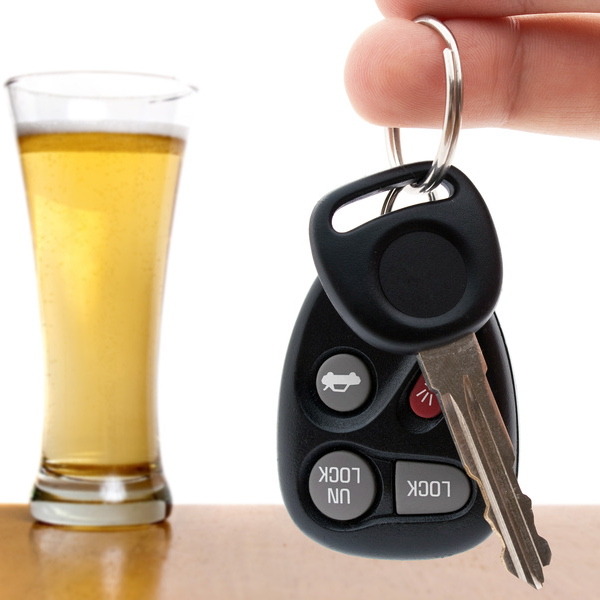 Drunk driving has become the most hotly debated and visible crime in the entire country. The amount of media attention and lobbyist money that is directed toward DUI education and prevention simply has no comparison. Sure, the war on drugs is trudging along, and sucking up millions of taxpayer dollars, but it targets dozens of substances, and not one single offense. Drunk driving stands alone for a variety of reasons including the fact that it is so common, and its defendants do not fall within a specific age or socioeconomic group. Teenagers, professionals, celebrities, cops, politicians etc. can be the defendants, and unfortunately the victims of this offense. All the media and lobbyist attention does not go unnoticed by lawmakers and state agencies, and as a result there are pages of laws and regulations governing DUI policy. The courts are charged with the task of interpreting each of these regulations, and this past week Maryland’s highest court released a lengthy opinion after being called upon to do just that.
Drunk driving has become the most hotly debated and visible crime in the entire country. The amount of media attention and lobbyist money that is directed toward DUI education and prevention simply has no comparison. Sure, the war on drugs is trudging along, and sucking up millions of taxpayer dollars, but it targets dozens of substances, and not one single offense. Drunk driving stands alone for a variety of reasons including the fact that it is so common, and its defendants do not fall within a specific age or socioeconomic group. Teenagers, professionals, celebrities, cops, politicians etc. can be the defendants, and unfortunately the victims of this offense. All the media and lobbyist attention does not go unnoticed by lawmakers and state agencies, and as a result there are pages of laws and regulations governing DUI policy. The courts are charged with the task of interpreting each of these regulations, and this past week Maryland’s highest court released a lengthy opinion after being called upon to do just that.
Continue reading →
Articles Posted in DWI and DUI
Police Set To Ramp Up Summer DUI Enforcement
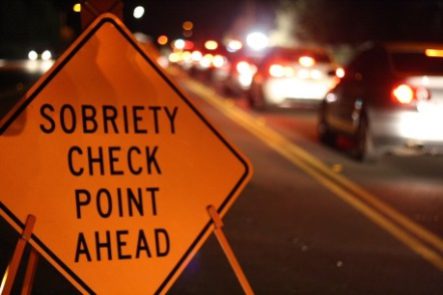 Each year as the summer months approach the Maryland State Police tries to send a clear message that DUI enforcement will be a top priority. This year the MSP sent that message by way of a DUI saturation patrol during a targeted Cinco De Mayo enforcement. Numerous state police installations as well as the State Police Impaired Driving Effort or SPIDRE were out in full force this past Monday to specifically look for impaired and unsafe drivers. When the dust settled on the morning of May 6th, troopers had tallied 81 drunk driving arrests, which is nearly eight times more arrests than on normal weekday. Troopers also issued over 700 citations and over 1,000 speed violation warnings. And yes, we are surprised as well that the state troopers issued more warnings than tickets. The MSP issued a press release the following day, but it did not seem to pick up a ton of media attention, as only one outlet that we could find published the story. Nonetheless, this is definitely a sign of more targeted enforcements and press releases to come. And with the Memorial Day holiday just weeks away you can bet that another DUI saturation patrol is on the horizon.
Each year as the summer months approach the Maryland State Police tries to send a clear message that DUI enforcement will be a top priority. This year the MSP sent that message by way of a DUI saturation patrol during a targeted Cinco De Mayo enforcement. Numerous state police installations as well as the State Police Impaired Driving Effort or SPIDRE were out in full force this past Monday to specifically look for impaired and unsafe drivers. When the dust settled on the morning of May 6th, troopers had tallied 81 drunk driving arrests, which is nearly eight times more arrests than on normal weekday. Troopers also issued over 700 citations and over 1,000 speed violation warnings. And yes, we are surprised as well that the state troopers issued more warnings than tickets. The MSP issued a press release the following day, but it did not seem to pick up a ton of media attention, as only one outlet that we could find published the story. Nonetheless, this is definitely a sign of more targeted enforcements and press releases to come. And with the Memorial Day holiday just weeks away you can bet that another DUI saturation patrol is on the horizon.
Continue reading →
Will Marijuana Reform Result In Changes To DWI Laws?
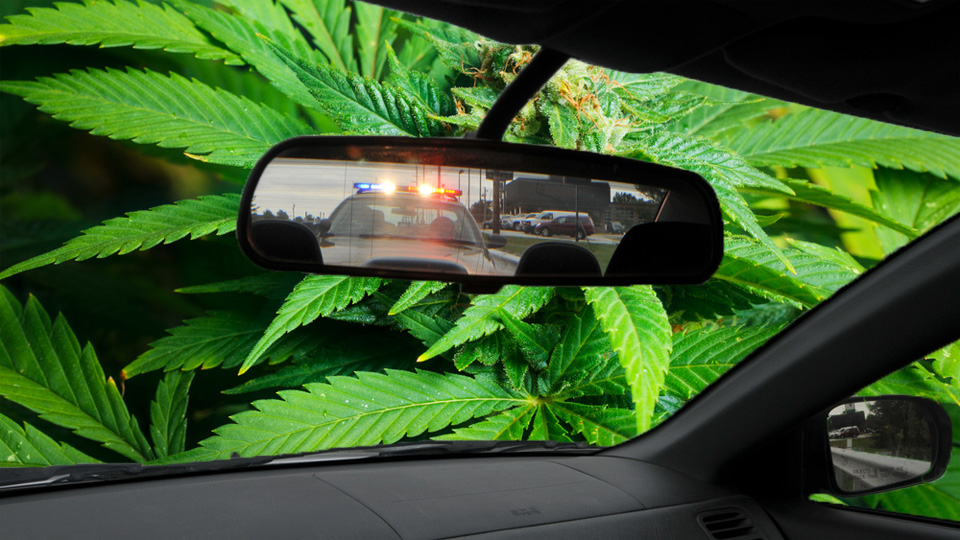 A popular argument against the legalization of marijuana is that our roads will become packed with stoned drivers, and thus become more dangerous. While this argument lacks any sort of baseline data, it has appealed to those who are set on condemning medical and recreational pot use at all costs. It did not prove persuasive though in Maryland’s 2014 legislative session, as medical marijuana easily passed. The revised medical program will become law in October, and could be fully functioning within 18 months. But legalization for recreational use will undoubtedly be the hot topic in our state’s next few legislative sessions (until it becomes law, possibly within the next 3-5 years), and the marijuana DWI argument is sure to surface. Maryland already incorporates drug use in its DWI statute, but there are no specific provisions, which refer to marijuana testing and legal limits. We can look to other states to answer some of the questions about how the legislature, police officers, and prosecutors will handle this issue.
A popular argument against the legalization of marijuana is that our roads will become packed with stoned drivers, and thus become more dangerous. While this argument lacks any sort of baseline data, it has appealed to those who are set on condemning medical and recreational pot use at all costs. It did not prove persuasive though in Maryland’s 2014 legislative session, as medical marijuana easily passed. The revised medical program will become law in October, and could be fully functioning within 18 months. But legalization for recreational use will undoubtedly be the hot topic in our state’s next few legislative sessions (until it becomes law, possibly within the next 3-5 years), and the marijuana DWI argument is sure to surface. Maryland already incorporates drug use in its DWI statute, but there are no specific provisions, which refer to marijuana testing and legal limits. We can look to other states to answer some of the questions about how the legislature, police officers, and prosecutors will handle this issue.
Continue reading →
Maryland Poised To Ban Grain Alcohol
 The state Senate recently passed a bill that would ban the sale of grain alcohol throughout Maryland. The bill passed by a wide margin, 37 to 10 to be exact, and now awaits a vote in the House of Delegates before reaching the governor’s desk. This same bill passed the Senate each of the last two legislative sessions, but failed to gain momentum, and ultimately stalled in the House. This year may be different though, as the chairman of a House subcommittee on alcoholic beverages has publicly backed the bill and will no doubt try to convince his colleagues of the bill’s merit. The main goal of the grain alcohol ban is to lower the risk of binge drinking fatalities, injuries, and legal incidents such as DUI and even date rape on college campuses where grain alcohol is popular. The product is most commonly sold under the label of Everclear, which is 190 proof or 95 percent alcohol. It is commonly mixed with fruit juice or other mixers and placed in a large cooler for consumption. The argument from supporters of the ban is that college students have no idea how much alcohol there are consuming, and often drink more than they intend. Whether the grain alcohol itself is to blame is a question that is subject to much debate.
The state Senate recently passed a bill that would ban the sale of grain alcohol throughout Maryland. The bill passed by a wide margin, 37 to 10 to be exact, and now awaits a vote in the House of Delegates before reaching the governor’s desk. This same bill passed the Senate each of the last two legislative sessions, but failed to gain momentum, and ultimately stalled in the House. This year may be different though, as the chairman of a House subcommittee on alcoholic beverages has publicly backed the bill and will no doubt try to convince his colleagues of the bill’s merit. The main goal of the grain alcohol ban is to lower the risk of binge drinking fatalities, injuries, and legal incidents such as DUI and even date rape on college campuses where grain alcohol is popular. The product is most commonly sold under the label of Everclear, which is 190 proof or 95 percent alcohol. It is commonly mixed with fruit juice or other mixers and placed in a large cooler for consumption. The argument from supporters of the ban is that college students have no idea how much alcohol there are consuming, and often drink more than they intend. Whether the grain alcohol itself is to blame is a question that is subject to much debate.
Continue reading →
Over 30 Players Arrested In NFL Offseason
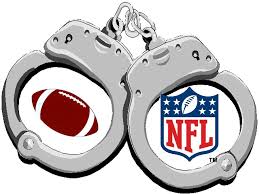 The 2013 NFL season is officially underway, and week one of America’s most popular sport is now in the books. Over one million people attended an NFL game in week one, and tens of millions more watched on television. The sport has never been more popular, and with the concussion lawsuit being resolved, the sport has never been in a better financial position. But the stain of a tumultuous offseason remains; as over thirty active players were arrested from the end of the Baltimore Ravens’ Super Bowl win until the start of this season. Players from 19 different teams were either booked on criminal charges or taken into custody on outstanding bench or arrest warrants. The charges ranged in severity from simple possession of drugs all the way up to murder. Despite the league’s growth in popularity and prosperity, player arrests are an issue that the commissioner’s office will continue to battle in the coming years.
The 2013 NFL season is officially underway, and week one of America’s most popular sport is now in the books. Over one million people attended an NFL game in week one, and tens of millions more watched on television. The sport has never been more popular, and with the concussion lawsuit being resolved, the sport has never been in a better financial position. But the stain of a tumultuous offseason remains; as over thirty active players were arrested from the end of the Baltimore Ravens’ Super Bowl win until the start of this season. Players from 19 different teams were either booked on criminal charges or taken into custody on outstanding bench or arrest warrants. The charges ranged in severity from simple possession of drugs all the way up to murder. Despite the league’s growth in popularity and prosperity, player arrests are an issue that the commissioner’s office will continue to battle in the coming years.
Continue reading →
State Rep Arrested For Second Alcohol Offense
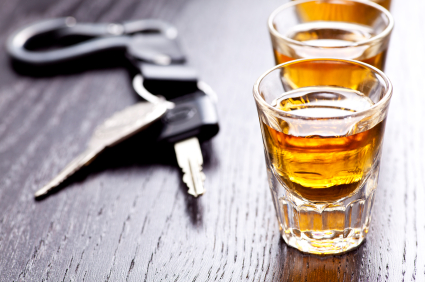 Back in May we posted an article about two politicians, a state lawmaker and a Baltimore County Councilman, who ran into legal troubles as a result of alcohol related incidents. Both were subsequently convicted of DUI in District Court. It seems that national politicians make news headlines each week for some sort of criminal or scandalous behavior, and state and local politicians are by no means without their share of mishaps. These two incidents are the proof, and as a result we are no longer surprised to read the stories in local news outlets and police blotters. But in the case of delegate Donald Dwyer, you can’t help but be shocked by this most recent arrest. The delegate’s second arrest in the past year is a political catastrophe no doubt, but the implications of this incident extent far beyond politics.
Back in May we posted an article about two politicians, a state lawmaker and a Baltimore County Councilman, who ran into legal troubles as a result of alcohol related incidents. Both were subsequently convicted of DUI in District Court. It seems that national politicians make news headlines each week for some sort of criminal or scandalous behavior, and state and local politicians are by no means without their share of mishaps. These two incidents are the proof, and as a result we are no longer surprised to read the stories in local news outlets and police blotters. But in the case of delegate Donald Dwyer, you can’t help but be shocked by this most recent arrest. The delegate’s second arrest in the past year is a political catastrophe no doubt, but the implications of this incident extent far beyond politics.
Just 8 months ago, in December of 2012, the delegate was arrested and charged with operating a vessel while under the influence of alcohol after he crashed his boat on an Anne Arundel County river. Numerous people, including children, were injured as a result of this boat accident, after which the delegate admitted to drinking at least 8 beers. He subsequently pled guilty to this offense and was sentenced to probation and 30 days in the county jail. But he was able to avoid serving that sentence after his defense attorney filed a de novo appeal to the Circuit Court. Under Maryland law, a criminal defendant has an absolute right to appeal a District Court criminal judgment, and upon filing the appeal the case basically starts over from scratch in the Circuit Court. In this particular case the delegate did not have to immediately serve his jail sentence because he was given an appeal bond, which is commonly granted to first time offenders. On August 6th Dwyer once again pled guilty to the alcohol charge and was given a sentencing date of October 25th of this year. Sentencing was set off to allow him to continue alcohol abuse treatment and education, the progress reports of which would be used as mitigation at the sentencing hearing. This is a common practice in DUI cases in order to obtain a probation before judgment or PBJ, and in more serious cases a suspended jail sentence.
Rather than take advantage of the delayed sentencing date to build a resume of mitigation, the delegate did just the opposite. Two weeks after pleading guilty Dwyer was again arrested for DUI and a host of other traffic infractions such as negligent driving, this time on the roadway and not the waterway. Nobody was injured and there was no accident, but that should matter little to the delegate’s colleagues, the public, and the judge. Fellow state lawmakers have already been outspoken about Dwyer’s behavior and public backlash is imminent. But for now the delegate has bigger problems to deal with. The assistant state’s attorney has already filed a motion to revoke Dwyer’s appeal bond, which will be heard next week. If the judge revokes the bond Dwyer will be remanded to the jail pending the outcome of his case later this fall. And the judge will undoubtedly take this recent arrest into account when making a sentencing decision. The blog will update with an article as new developments occur, but it is likely that the delegate will be in jail or at the very least in inpatient alcohol treatment for the next two months before he is sentenced.
Maryland Bars Still Not Liable For DUI Incidents
 The state’s highest court recently ruled on a lawsuit involving dram shop laws, an issue that has been hotly debated for the last few decades. In essence, dram shop laws refer to the liability of bars and restaurants for the actions of their patrons. A state with dram shop laws provides a third party with a legal right to sue a bar or restaurant, which has continued to serve a patron that is visibly drunk, if the patron causes some sort of injury to the third party. Dram shop is simply a traditional term for any establishment that sells alcohol. These laws typically apply to DUI accidents involving serious injury or death. Currently there are 43 states with some sort of dram shop statute, but both the Maryland Legislature and the Courts have not been inclined to follow the majority on this issue, with neighboring Virginia and Delaware sharing the same view. Numerous bills have been proposed over the years, but none has ended up on the governor’s desk for a signature, and the state’s highest court has never upheld a civil action against a bar or tavern for an act of a patron that occurred outside the establishment.
The state’s highest court recently ruled on a lawsuit involving dram shop laws, an issue that has been hotly debated for the last few decades. In essence, dram shop laws refer to the liability of bars and restaurants for the actions of their patrons. A state with dram shop laws provides a third party with a legal right to sue a bar or restaurant, which has continued to serve a patron that is visibly drunk, if the patron causes some sort of injury to the third party. Dram shop is simply a traditional term for any establishment that sells alcohol. These laws typically apply to DUI accidents involving serious injury or death. Currently there are 43 states with some sort of dram shop statute, but both the Maryland Legislature and the Courts have not been inclined to follow the majority on this issue, with neighboring Virginia and Delaware sharing the same view. Numerous bills have been proposed over the years, but none has ended up on the governor’s desk for a signature, and the state’s highest court has never upheld a civil action against a bar or tavern for an act of a patron that occurred outside the establishment.
Continue reading →
State Police Introduce DUI Task Force
 The Maryland State Police officially launched its DUI prevention taskforce at a press conference in Jessup last week. The taskforce is nicknamed SPIDRE for State Police Impaired Driving Effort, and consists of seven specially trained troopers. These troopers will move throughout the state with the goal of impacting every legal jurisdiction. For now though, the taskforce will concentrate its efforts in areas that law enforcement officials have identified as DUI hotspots. These areas, which are documented to have the most alcohol related crashes and citations, include Prince George’s County, Baltimore County, Howard County, Ocean City, and Hagerstown. The taskforce first deployed in PG County back in May and conducted over 1,300 traffic stops. The trooper team made 254 DUI arrests and 53 criminal arrests, and issued over 3,500 traffic citations and repair orders. Clearly the task force is not shy when it comes it issuing tickets, as they averaged almost 3 per traffic stop.
The Maryland State Police officially launched its DUI prevention taskforce at a press conference in Jessup last week. The taskforce is nicknamed SPIDRE for State Police Impaired Driving Effort, and consists of seven specially trained troopers. These troopers will move throughout the state with the goal of impacting every legal jurisdiction. For now though, the taskforce will concentrate its efforts in areas that law enforcement officials have identified as DUI hotspots. These areas, which are documented to have the most alcohol related crashes and citations, include Prince George’s County, Baltimore County, Howard County, Ocean City, and Hagerstown. The taskforce first deployed in PG County back in May and conducted over 1,300 traffic stops. The trooper team made 254 DUI arrests and 53 criminal arrests, and issued over 3,500 traffic citations and repair orders. Clearly the task force is not shy when it comes it issuing tickets, as they averaged almost 3 per traffic stop.
The taskforce will require funding of about $1.5 million, which the Motor Vehicle Administration’s Maryland Highway Safety Office is shelling out in response to the large number of alcohol related crashes on state roads. Last year there were 158 people killing in these crashes and over 3,000 injured. Although theses numbers do not indicate an increase over the yearly average, this is still an extremely high number for a state with such a small total population. Nearly one third of all motor vehicle accidents are in some way caused or related to alcohol and drug consumption. Whether the SPIDRE task force ends up being successful depends on exactly how you define success. DUI suppression initiatives such as task forces, specially trained teams, and checkpoints will always result in more arrests. The state spends millions and the resources and manpower do end up putting people behind bars. But the ultimate goal of these programs should never be about arrests, but rather about prevention and mitigation. The real question should be whether SPIDRE actually makes our roads safer.
Continue reading →
Law Enforcement Initiates Boater Safety Plan
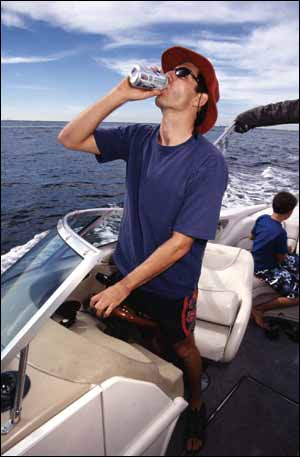 Maryland law enforcement has officially implemented a boater safety plan in response to the rising number of serious injuries and fatalities on the hundreds of state waterways. The plan, entitled Operation Dry Water, is actually a national initiative, which was created to raise awareness and enforcement of incidents of boating under the influence or BUI. According to the National Association of State Boating Law Administrators, nearly 17 percent of all boating fatalities are caused by alcohol use. Lawmakers and law enforcement agencies decided to adopt the national initiative after a recent three year spike in waterway deaths. In 2011 there were 24 Maryland waterway fatalities and last year there were 11, which is double the 10 year state average.
Maryland law enforcement has officially implemented a boater safety plan in response to the rising number of serious injuries and fatalities on the hundreds of state waterways. The plan, entitled Operation Dry Water, is actually a national initiative, which was created to raise awareness and enforcement of incidents of boating under the influence or BUI. According to the National Association of State Boating Law Administrators, nearly 17 percent of all boating fatalities are caused by alcohol use. Lawmakers and law enforcement agencies decided to adopt the national initiative after a recent three year spike in waterway deaths. In 2011 there were 24 Maryland waterway fatalities and last year there were 11, which is double the 10 year state average.
Continue reading →
NTSB Recommends Lowering Legal Alcohol Limit
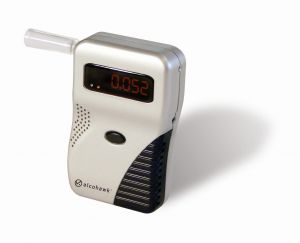 Over 30 years ago the National Transportation Safety Board advised all states to alter their drunk driving laws by lowering the legal blood alcohol limit from .10 to .08. But the NTSB and congress did not have the direct power to compel states to follow this recommendation through federal legislation. As a result, many states were slow to act on the recommendation and some simply ignored it for years. A few states, including our very own Maryland, likely would still have not ratified the .08 limit had it not been for the federal government employing an all too common backhanded tactic to force the hand of the state governments. States depend on the federal government for a variety of funding grants, but perhaps no single grant is larger than the money states are given to build and maintain highways. The federal money obviously comes at a cost, and congress has the authority to take it away as easily as it gives it. In the 90’s congress began to threaten to discontinue federal highway funding, which amounts to tens of millions, to any state that decided to exercise their constitutional autonomy by not following the NTSB’s recommendation. Federalism is great, but money talks, and by 2004 the DUI laws of all fifty states had incorporated a .08 BAC limit. Maryland held out until 2001.
Over 30 years ago the National Transportation Safety Board advised all states to alter their drunk driving laws by lowering the legal blood alcohol limit from .10 to .08. But the NTSB and congress did not have the direct power to compel states to follow this recommendation through federal legislation. As a result, many states were slow to act on the recommendation and some simply ignored it for years. A few states, including our very own Maryland, likely would still have not ratified the .08 limit had it not been for the federal government employing an all too common backhanded tactic to force the hand of the state governments. States depend on the federal government for a variety of funding grants, but perhaps no single grant is larger than the money states are given to build and maintain highways. The federal money obviously comes at a cost, and congress has the authority to take it away as easily as it gives it. In the 90’s congress began to threaten to discontinue federal highway funding, which amounts to tens of millions, to any state that decided to exercise their constitutional autonomy by not following the NTSB’s recommendation. Federalism is great, but money talks, and by 2004 the DUI laws of all fifty states had incorporated a .08 BAC limit. Maryland held out until 2001.
Continue reading →
 Criminal Defense Lawyer Blog
Criminal Defense Lawyer Blog

